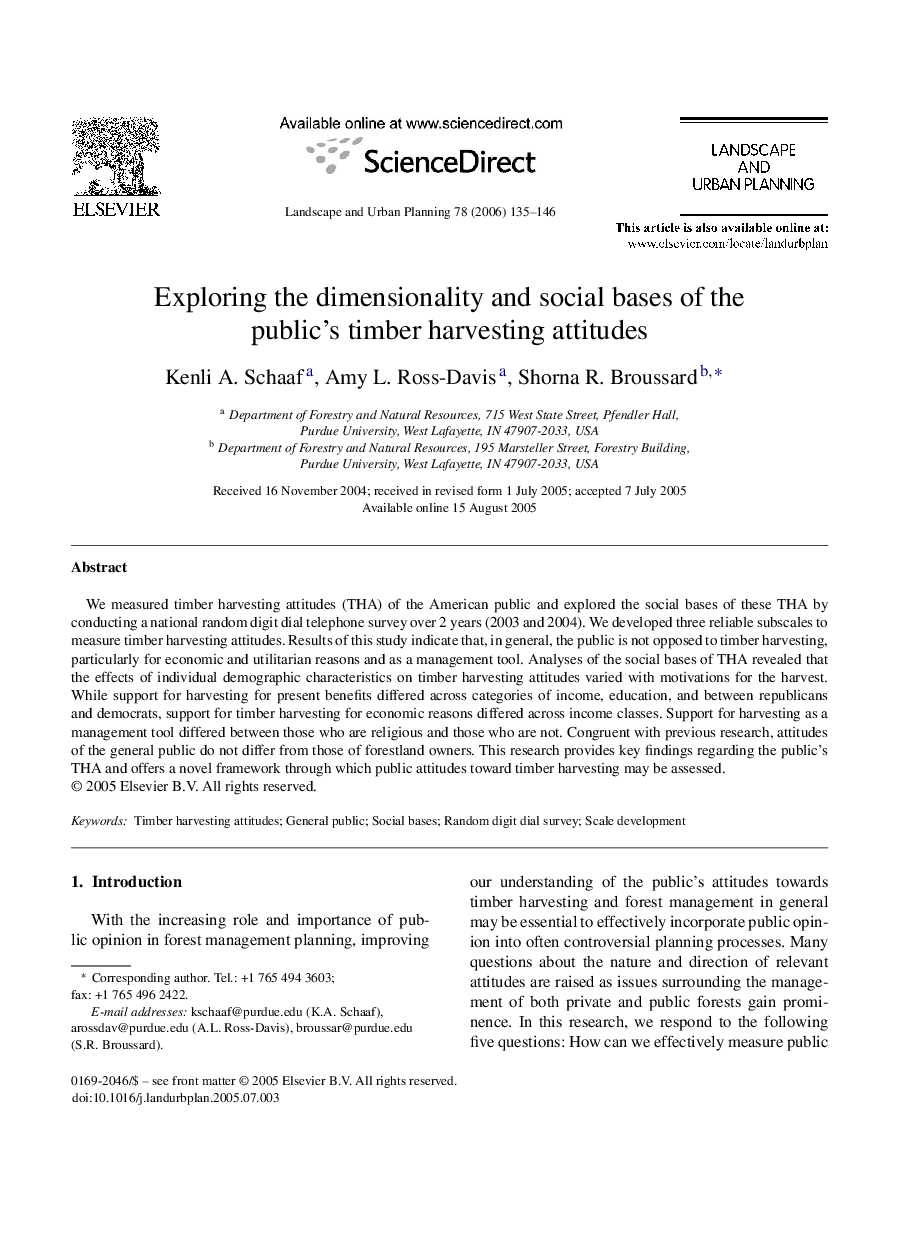| Article ID | Journal | Published Year | Pages | File Type |
|---|---|---|---|---|
| 1050760 | Landscape and Urban Planning | 2006 | 12 Pages |
We measured timber harvesting attitudes (THA) of the American public and explored the social bases of these THA by conducting a national random digit dial telephone survey over 2 years (2003 and 2004). We developed three reliable subscales to measure timber harvesting attitudes. Results of this study indicate that, in general, the public is not opposed to timber harvesting, particularly for economic and utilitarian reasons and as a management tool. Analyses of the social bases of THA revealed that the effects of individual demographic characteristics on timber harvesting attitudes varied with motivations for the harvest. While support for harvesting for present benefits differed across categories of income, education, and between republicans and democrats, support for timber harvesting for economic reasons differed across income classes. Support for harvesting as a management tool differed between those who are religious and those who are not. Congruent with previous research, attitudes of the general public do not differ from those of forestland owners. This research provides key findings regarding the public's THA and offers a novel framework through which public attitudes toward timber harvesting may be assessed.
